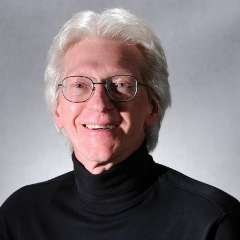Who’s afraid of the pandemic? Not Jörg Widmann, one of just a handful foreign artists able to get to the Prague Spring festival this year. And for a residency, no less. The German clarinetist, conductor and composer is playing in three concerts that feature generous samplings of his music and a double dose of Mozart: the Clarinet Concerto with PKF – Prague Philharmonia and, in the concert reviewed here, the Clarinet Quintet played by the Schumann Quartet.
The program for the Schumann Quartet concert was a gem, with Haydn’s String Quartet No. 21 (Op. 17 No. 3) and Mozart’s quintet bookending a contemporary piece, Widmann’s own Jagdquartett (Hunt Quartet). The third in a cycle of five string quartets, Jagdquartett takes structural inspiration from Haydn, borrows its title from Mozart (whose string quartet “The Hunt” was dedicated to Haydn) and then runs off on its own wild, unpredictable way. Along with exceptional musical skills, the piece demands dramatic flair from the players, who are called on to act out a chase ending in the cellist’s demise.
Jagdquartett begins with the players standing in a circle, setting the tempo with thrusts of their bows toward the center, then sitting with a shout and jumping into a dotted rhythm that grows in intensity and complexity. The melodic motif is like a musical Rorschach: Some listeners hear echoes of Schumann in it, Czechs recognize a familiar folk song, and this American reviewer suddenly found himself at a hoedown. The real reference, according to Widmann, is the opening rhythm of Beethoven’s Seventh Symphony, which he whips to a frenzy and then totally deconstructs.
The deconstruction starts with another group shout, apparently as the prey is cornered, followed by a cascade of frantic musical bursts that devolve into clicks, squeaks, squawks and other effects that literally shred the hair off the bows. After a quick break – just enough to count out the rhythm – a final convulsion of ripping and rending ends with three of the players jumping to their feet, this time pointing their bows at the cellist, who groans and dies. Corny? Maybe, but in capable hands the music is gripping and the theatrics essential to Widmann’s goal of creating a work that balances on a knife-edge between shock and humor. When it’s over, he said, the audience should laugh, but with the kind of laughter that sticks in your throat: “Was that really funny, or not at all?”
Opening with more standard fare gave the quartet an opportunity to showcase the sound and style that have made it a favorite in halls ranging from Lincoln Center in New York to Robert Schumann Hall in Düsseldorf, where it has held residencies. The ensemble’s technique is polished and proficient, the playing polite to a fault, faithful to the score with a refreshing verve. Their sound is round, pleasant yet erudite, and strikingly seamless – the group speaks with one voice, not four. This works beautifully in a piece like the Haydn opener, with its irresistible melodic flow and classical form and harmonies.
Mozart offers more expression, though what the quartet gave Widmann was essentially a clean, bright backdrop for colorful clarinet work. His affection for the composer was clear. Widmann didn’t so much play the notes as caress them, lingering just enough to add emotional depth to the finely crafted frame provided by the quartet. Sitting amid the ensemble, he both complemented and fit neatly into its tight sound. By the end, it was clear why Mozartfest Würzburg enlisted the Schumann Quartet and Widmann for a five-city tour of Europe (including this stop in Prague) celebrating the festival’s 100th anniversary.
The bane of the pandemic year has been watching concerts online, with streaming performances a welcome but inadequate substitute for live music. This one offered a satisfying reminder of what can be done in the live format. Along with the music, viewers had an opportunity to see Widmann talk about the ideas and methods he employed in Jagdquartett, and rehearse the piece with the quartet. He almost got teary-eyed talking about how much it meant to play Mozart in Prague, which he had never done before. The composer’s clarinet masterpieces, in a city he loved? Pandemic notwithstanding, there’s no way Widmann was going to miss that opportunity.




